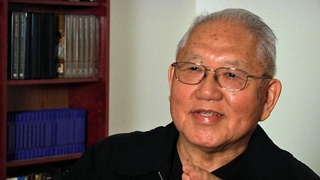Interviews
Different races have to live together and interact
To me, the United States is sort of a microcosm of the world of tomorrow, where all different races would have to live together and interact, and be able to get along with each other. That’s exactly what the United States has to do, and that’s exactly what the world needs to do. Because you can’t say, I’m Japanese, you’re Chinese, we’re different, and then start keeping apart.
I could still remember so many other Asians who really came to fight for the Japanese American Redress Movement, and they didn’t have to. They were not getting anything out of it. But they really felt, on principle, that they need to be active in it, and I feel the same way about their concerns. And for that reason, I think the future of Japanese Americans is really no different than the future of any other ethnic group in the United States, and no different than, say, the nations in the world, because the whole idea is to get along.
Date: July 1-2, 1998
Location: California, US
Interviewer: Mitchell Maki, Darcie Iki
Contributed by: Watase Media Arts Center, Japanese American National Museum
Explore More Videos










Postwar school-life
(b. 1930) Half Japanese and grew up in both Japan and the United States.

Fifty Years and Going Strong
(1938-2020) Japanese American attorney and civil rights activist

Re-examining Identity
(1941-2018) Japanese Canadian photojournalist and activist



The difference between Nikkei community in Oizumi and Brazil (Japanese)
(b. 1979) Sansei Nikkei Brazilian who lives in Oizumi-machi in Gunma prefecture. He runs his own design studio.
